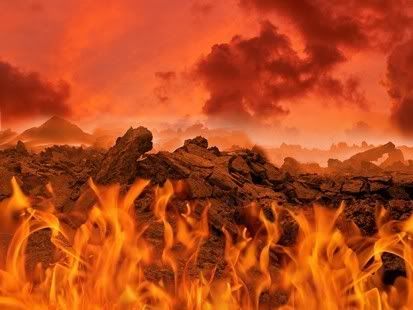J
jeruel
Guest
...do you think God created/will create it.
I am making this new post for the reason that the one who started the topic "Why did God create hell?" thinks the "why" can be answered without delving into the "what" of hell. The guidelines in how to answer the question forces those who have concept of hell different from his not to answer for it would be useless to bring a "why" for a different "what."
I would like to open this thread top let people bring congruence to their understanding of "what" hell is and how does that jive with "why" it is created/will be created.
Example:
My understanding of hell is a worldwide burning of this earth in the last days (future) which will destroy everything including sinners, Satan, and his evil angels. This is the what.
So that sin and its results will be forever vanished from the universe. This will put a finality into the tug of war between the forces of good and evil. This is the why.
As you can see my "what" fits into the puzzle of my "why." May I know yours?
I am making this new post for the reason that the one who started the topic "Why did God create hell?" thinks the "why" can be answered without delving into the "what" of hell. The guidelines in how to answer the question forces those who have concept of hell different from his not to answer for it would be useless to bring a "why" for a different "what."
I would like to open this thread top let people bring congruence to their understanding of "what" hell is and how does that jive with "why" it is created/will be created.
Example:
My understanding of hell is a worldwide burning of this earth in the last days (future) which will destroy everything including sinners, Satan, and his evil angels. This is the what.
So that sin and its results will be forever vanished from the universe. This will put a finality into the tug of war between the forces of good and evil. This is the why.
As you can see my "what" fits into the puzzle of my "why." May I know yours?






